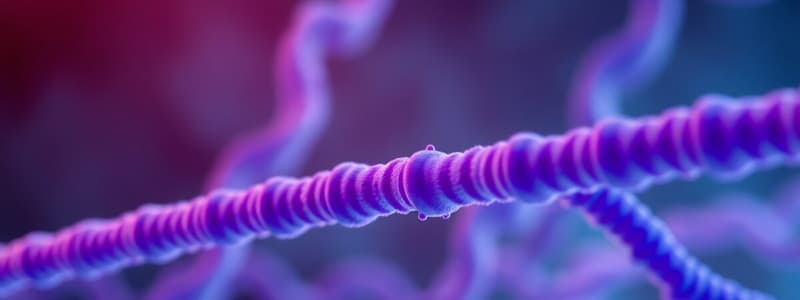Podcast
Questions and Answers
What is the primary function of a scanner?
What is the primary function of a scanner?
- To transmit faxes
- To create printed images
- To convert physical documents into digital format (correct)
- To enhance photos
Which of the following is NOT a common use for scanned documents?
Which of the following is NOT a common use for scanned documents?
- Directly serving as physical copies (correct)
- Editing digitally
- Storing for records
- Sharing via email
What is a disadvantage of relying solely on scanned documents?
What is a disadvantage of relying solely on scanned documents?
- They take up less physical space
- They are immune to data loss
- They can be reused easily
- They require an electronic device to access (correct)
In what scenario would a scanner be most useful?
In what scenario would a scanner be most useful?
Which type of document is least likely to be scanned?
Which type of document is least likely to be scanned?
Flashcards are hidden until you start studying
Study Notes
What is a Gene?
- A gene is a unit of heredity, a segment of DNA that contains the code for a specific protein or functional RNA molecule.
- Genes are organized into chromosomes and located within the nucleus of a cell.
- Genes are passed down from parents to offspring, determining various traits.
- Genes are responsible for building and maintaining our bodies.
- Genetic makeup is called genotype which is transcribed into phenotype, the observed characteristics of an organism.
- Genes are essential for the development, functioning, and inheritance of all living organisms.
Gene Structure and Function
- Genes consist of a coding sequence (exon), which contains the instructions for protein synthesis.
- Genes also contain non-coding regions (introns) and regulatory elements that control gene expression.
- The process of gene expression involves transcription, translation, and protein folding.
- One gene can code for multiple proteins through alternative splicing.
- Gene expression can be regulated by various factors like environmental cues and hormones.
- Mutations in genes can lead to various diseases and disorders.
Types of Genes
- There are different types of genes, including:
- Structural genes: code for proteins that form structures in the body.
- Regulatory genes: Control the expression of other genes.
- Housekeeping genes: are essential for basic cellular functions.
- Developmental genes: Guide the development of an organism during its life cycle.
Applications of Genetics
- Genetics has wide applications in different fields:
- Medicine: genetic testing, gene therapy, personalized medicine.
- Agriculture: developing disease-resistant crops, improving crop yields.
- Forensics: DNA fingerprinting, paternity testing.
- Evolutionary Biology: understanding the evolutionary history of life.
Ethical Considerations in Genetics
- Genetic research and applications raise ethical concerns:
- Privacy and confidentiality: access to genetic information.
- Genetic discrimination: using genetic information to discriminate against individuals.
- Eugenics: controlling human evolution through genetic manipulation.
- It's important to consider the ethical implications of genetic research and applications.
- Balancing the benefits of genetic advancements with ethical considerations is crucial.
Studying That Suits You
Use AI to generate personalized quizzes and flashcards to suit your learning preferences.




